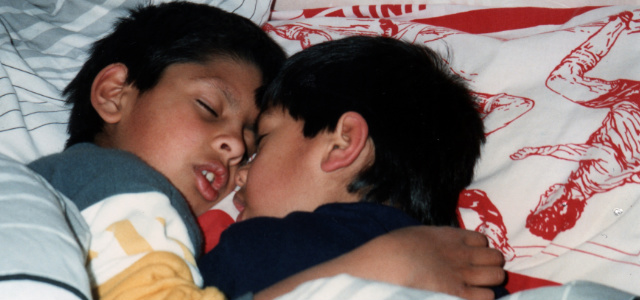Written by Suraj Shah. Inspired by greatness.
When you see someone behaving inappropriately, what feelings arise in you and how do you approach the situation?
A friend was recently telling me about a party he attended several years ago where there was this one married man in his mid 40s, who was slightly drunk and was chatting up many of the other women in the room. My friend was furious at this guy’s behaviour. This guy appeared sleazy and was tarnishing an otherwise fun night out for everyone else there.
Several months later, my friend had a chance meeting with this ‘sleazy’ man at a community group meeting, and it turned out that the guy had a young daughter with a severe case of autism, where she woud continually bite into furniture, just like a dog. This guy was struggling to look after his daugher and he was simply acting out. He was not himself. His behaviour at the party was clearly inappropriate, which he himself had recognised, but had resorted to drinking his sorrows away and attempting to find an escape from the struggles of his day-to-day reality.
My friend, upon learning the truth of this guy’s situation, felt great sadness. In fact, even while recounting the story to me, he had tears rolling down his eyes. He had vowed that from that day on, he would never again let first impressions count so much for how he viewed the people in the world around him. He resolved to discover the underlying truth of the situation, the struggle, fear or sorrow that somebody is going through, and sought to make sense of their behaviour, nomatter how inappropriate they behaved.
Opening eyes to sorrow
I’m grateful my friend had shared that story with me. It helped to open my eyes to the reality of just how much our family, friends, neighbours and colleagues in the world around us struggle to survive in life and make sense of the situations they face.
It helped me to notice where I lack compassion and understanding, and the work I now need to do to better tolerate and care for those around us who just want acknowledgement that life IS tough.
When they behave inappropriately
It may be that someone is drunk and seemingly uncrontrollable at a party, drowning away their sorrows of a broken relationship or the sudden death of an adored spouse.
Perhaps they have their feet up on a seat in the bus with music blaring out of their earphones, attempting to drown out the troubles of the world around them, yet never really being able to mask the deafening noise of their minds.
It could be that they are a colleague being controlling yet hostile, attempting to take charge of their working environment while a messy divorce is crumbling the stability of family life from under their feet.
Responding to inappropriate behaviour
Step back a moment and just observe how they’re behaving. See it for what it is. Separate their actions from how you feel about it. Start with the assumption that their inappropriate behaviour is not who they are at their core.
But please don’t for one moment think I am suggesting that you just let them continue to behave in this way. We all have a responsibilty to help improve the world around us and give support to those who are silently crying out for it.
You may find that it is your duty to do something about it – perhaps to hear them out and if they ask for guidance, then to suggest something that may help them. It may also be your duty to take care of the people that their actions are affecting.
Life ain’t easy, not for any of us
It’s clearly evident that this life is not easy. Not for any one of us.
We may have health, but be lacking in money. We may have millions in the bank, but no real friends to trust and care for. We may have friends and plenty of money, but be struck with a terminal illness.
We may appear to have it all – health, wealth, friendship – but still the greed of wanting more, or the fear of it all inevitably coming to an end.
Life is certainly not easy, for any one of us.
Less expecting, more understanding
Perhaps with a little more care, compassion and understanding, the way we respond to other people’s behaviour will be based on a deeper appreciation of what they are going through and founded on the truth of the situation, rather than our own expectations and judgements.
Then and only then will we see the world for what it is, our life for what it is.
No more facades. No more hiding from the truth. No more disappointment from expectations not met.
Just more care, more compassion and more understanding.
